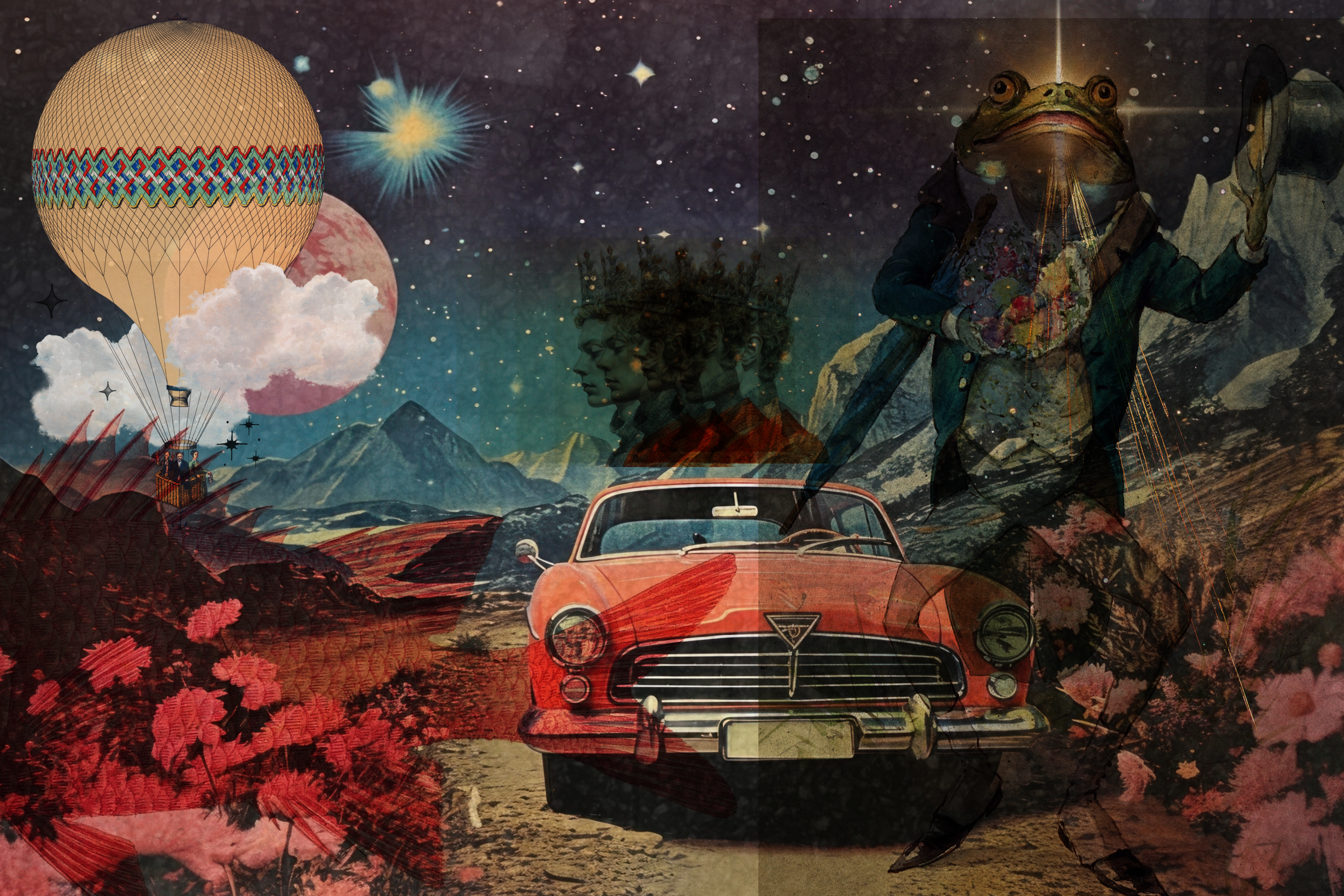Buffalo seasons Awareness in life

The Self That Holds Us: On Identity, Ego, and Becoming.
We spend so much of our lives trying to figure out who this “I” is—this constellation of stories, habits, wounds, longings, and flashes of wisdom that moves through the world in our name. Some days the “I” feels solid, knowable. Other days it dissolves, slipping through our fingers like water. And perhaps this is the point: the self is not a possession we hold, but a living process we learn to relate to with increasing honesty, courage, and grace. Carl Jung wrote that becoming ourselves is both the simplest and the most difficult task of a lifetime. Individuation, he said, is the work of gathering up the scattered pieces of who we are—the conscious stories, the shadowed memories, the unlived potentials—and integrating them into a coherent enough center from which we can move through the world. “Coming to selfhood,” he called it (CW 7, para. 266).
The Wisdom That Finds Us: On the Importance of Intuition.
We live in a culture that celebrates effort, reason, and productivity. Knowledge is assumed to be the result of calculation, research, or logic. And yet, the most important turns in our lives—the decision to change careers, the recognition of a partner’s truth, the sudden creative breakthrough—often arrive as hunches. Intuition is not the fruit of conscious labor but of unconscious ripening. Something within us, out of sight, gathers the fragments of experience, dream, and feeling, and suddenly pushes forth an insight like a flower breaking through the soil.
Jung reminds us that the work of intuition lies not in producing it but in catching it. The psyche offers; the ego must be attentive enough to receive.

Being in Alignment with Oneself: An Existential Task
In existential depth psychology, the concept of being in alignment with oneself is a central tenet that speaks to the essence of human authenticity. This idea suggests that individuals often live—often unconsciously—in ways that contradict their true nature, acting out of alignment due to external influences and learned belief systems. The structures and values imposed upon us by society, culture, family, and education frequently take precedence over our innate feelings and desires. Consequently, we become estranged from our authentic selves, leading to internal dissonance and confusion about our emotions. This essay explores the process of misalignment, its consequences, and the path toward self-reconciliation through existential awareness and authenticity.

Holding the Whole Person: Depth Therapy for Trauma, Grief, & Meaning-Making
As a psychotherapist with training in depth psychology, existential philosophy, narrative theory, and Buddhist practice, I have found that integrating these perspectives provides a flexible and deeply humane foundation for clinical work. Clients often arrive in therapy not only seeking relief from symptoms, but longing to understand themselves, repair internal fractures, and live with a sense of purpose and authenticity. These traditions, when held together in dialogue, support that process by inviting the individual to meet their suffering with awareness, responsibility, and symbolic depth.

Into the Depths: Healing the Silenced Child Within.
When we think about childhood wounds, we often picture raised voices, harsh discipline, or neglect. But some of the most enduring wounds are inflicted not through what is said or done—but through silence. When a parent freezes a child out emotionally or silences their voice, the damage can echo for decades, shaping how that child sees themselves, others, and the world.
These wounds don't simply vanish with age—they resurface in adulthood, often in our struggles with intimacy, trust, creativity, or self-worth. Working with a depth psychotherapist can be a powerful way to explore these inner child wounds.

Understanding the Therapeutic Alliance: Transference & Countertransference
Transference and countertransference offer unique opportunities to understand the unconscious mind at work. They illuminate relational patterns, unmet needs, and unresolved wounds that often drive present-day behavior. When handled skillfully, these phenomena deepen the therapeutic process, offering a gateway to profound healing and transformation for both the client and the therapist.

Being Cancer Aware, Every Day
October is Breast Cancer Awareness Month, a time dedicated to raising awareness, supporting those affected, and encouraging action toward early detection and prevention. While Breast Cancer Awareness Month aims to promote education and support, it can be emotionally triggering for some patients. Media attention, pink ribbons, and public discussions may evoke feelings of anxiety, fear, or even survivor’s guilt. Those in remission might feel the return of emotions they had worked hard to manage, such as the trauma of treatment or the uncertainty of their health’s future. Additionally, for those who have lost loved ones to breast cancer, the month may bring back painful memories, exacerbating grief and feelings of helplessness. In the spirit of awareness, this blog post honors anyone who has been touched by breast cancer, their struggles, their resilience, and their spirit. It also honors anyone who has been touched by any type of cancer, their struggles, their resilience, and their spirit.
To be all-inclusive, I suggest that as a society we adopt Being Cancer Aware, Every Day in an effort to support everyone impacted by cancer.

A Jungian Journey Towards Transformation
Jung's analytic psychology is essential for therapeutic healing and unfolds in four distinct stages: Confession, elucidation, education, and transformation. Each stage serves a unique purpose in helping individuals discover their sense of wholeness and autonomy, which leads to integration and individuation. This blog post delves into these stages to explore how they facilitate personal growth and healing.
Making Friends with One’s Anxiety …
Managing anxiety can be approached with a variety of techniques that help externalize and reduce the mental load. Engaging in mindfulness can significantly reduce anxiety by fostering greater awareness and acceptance of the present moment. Through practices like meditation, deep breathing, and mindful observation, individuals learn to observe their thoughts and emotions without being overwhelmed by them. This shift in perspective helps break the cycle of anxious thinking, allowing for a more grounded and calm response to stress. By cultivating a non-judgmental attitude toward thoughts and feelings, mindfulness empowers people to respond to anxiety with compassion and clarity, rather than fear or avoidance, ultimately leading to improved emotional well-being and resilience.

Peering Outside Your Snow Globe, Mindfully
When triggered by certain experiences or interactions, our snow globe can be "shaken," causing a blizzard of emotions and defenses to swirl around us. This metaphorical blizzard can cloud our vision, distort our perceptions, and make it hard to see beyond our immediate reactions. Real Dialogue requires us to recognize when our snow globe is being shaken and to work through the blizzard of emotions and defenses. It requires a willingness to see beyond our subjective lens, to calm our emotional blizzards, and to engage with others in a way that is open, empathetic, and transformative. Only then can we move from isolated snow globes to shared experiences, where real understanding, mindfulness, curiosity, and connection can flourish.
Why Am I Feeling Prickly? Understanding Defense Mechanisms
Defensive reactions from the unconscious are automatic, often involuntary responses that arise to protect us from perceived threats, discomfort, or emotional pain. These defenses are deeply ingrained in our psyche, typically developing early in life as a way to cope with difficult emotions or situations. Because they operate below the level of conscious awareness, we often don't realize we're engaging in them, even though they can significantly influence our behavior and interactions.

Resilience …That Which Does Not Kill Us
Nietzsche spoke to me on that lava field as if he were my Zarathustra: “That which does not kill us makes us stronger.” Indeed, I thought. Indeed. Decades later, I still rely on Western and Eastern philosophical writings to guide me in life and in my work with clients. Translating Nietzsche’s existential inquiry into therapeutic parlance leads me to a psychological concept gobbled up by 21st Century pop culture: Resilience.
What Nietzsche noted in the late 1800s is today described as one’s ability to rebound from life challenges through flexibility and adaptability. One’s resilience is supported by five pillars: self-awareness, engagement in self-care, the practice of mindfulness, supportive relationships, and living a life with purpose and meaning. During stressful times, any or all of these pillars may weaken, become unstable, or crumble. As one sustains the impacts of adversity, each can help buoy one through the storm.

I See You, Anger
Where does your anger live? Does it hold court in your belly? Does it wrap around your heart like a corset? Or is it so pervasive that it flows through your veins like Valvoline in a Formula 1 race car? If you’re like me, it might live in all those places and even a few I’m yet unaware of. Anger is alive in all of us—even when we try to ignore it. Even when social norms and expectations tell us anger is unacceptable. Over the next few weeks, I invite you to join me on a journey of discovery where the dark sides of you reveal you unveiled.

On Earth Day, The Minds of Gray Whales & Our Shadows
Nature is our teacher, every day. We only need listen, smell, taste, touch, and observe. On this 53rd Earth Day, reading our profundity can lead us into a verdant chartreuse and emerald-painted forest, where we can chase our Shadow amidst spring’s dew drops and cadmium yellow rays of sunshine.
Coming to understand the self in connection to our natural world and to others is an enlightening journey into waters and forest floors that we inhabited eons ago. Well before the study epigenetics, Carl Jung posited that a hidden and repressed part of the self, aka The Shadow, “reach[es] back into the realm of our animal ancestors.” [2]

